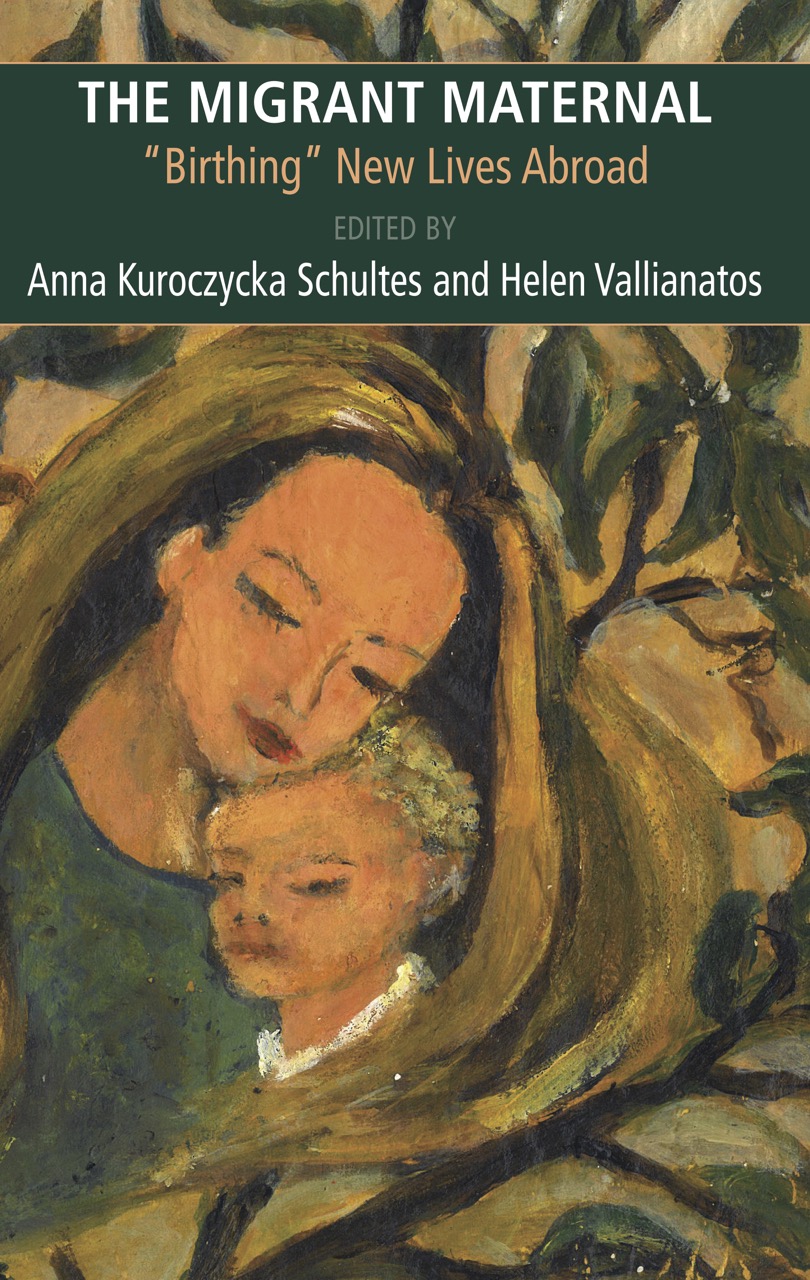
Price: $34.95
Page Count: 269
Publication Date: October 2016
ISBN: 978-1-77258-080-8
“This timely and wide-ranging volume contributes to women’s and gender studies’ multiple perspectives offered in academic and literary writing that explores immigrant/refugee mothers’ experiences from around the world. Mothers in New Zealand, Japan, Canada, The United States, Turkey, Italy and the Netherlands among others, are discussed. The anthology considers both the migration processes in di- verse contexts and the commonalities and differences in migrant/refugee mothers’ lived experiences. In today’s world, filled with unprecedented human displacement across borders, it is a must-read.”
—Rebecca Bromwich, Director, Carleton University’s Graduate Certificate in Conflict Resolution Program
“This volume provides a touching collection of articles describing the lived experiences of migrant and refugee mothers, who must negotiate motherhood in the social environment of an unfamiliar host country. The articles in this volume subtly challenge sensationalist media approaches to migration, forced and otherwise, by largely avoiding narratives of victimhood. The migrant and refugee mothers presented throughout this volume are powerful and dynamic in the face of structural and language barriers and cultural dissonance. While the specific emphases and methodological approaches are diverse, they are connected by themes of feminism, motherhood and mothering, resilience, and cultural transmission. This volume makes a solid contribution to the field of women studies.”
—Amanda Veile, Assistant Professor of Anthropology, Purdue University
Acknowledgements
Introduction: The Migrant Maternal
Anna Kuroczycka Schultes and Helen Vallianatos
MOTHERING IN A FOREIGN LAND I—“BIRTHING” NEW FAMILIES ABROAD
Reproducing Punjabiyat: Family Rhetoric and Birth Control Among Indian Migrant Women in Italy
Sara Bonfanti
From Mama Africa to Papatūānuku: The Experiences of a Group of African Immigrant and Refugee-Background Mothers Living in Auckland, Aotearoa-New Zealand
Helene Connor, Irene Ayallo, and Sue Elliott
Mother Tongue as the Language of Mothering and Homing Practice in Betty Quan’s Mother Tongue and Hiromi Goto’s Chorus of Mushrooms: Survival Strategies and Identity Construction of Migrant and Refugee Mothers
Eglė Kačkutė
Perinatal Care for Immigrants in the Netherlands: A Personal Account
Theano Lianidou
Motherhood and Unemployment: Immigrant Women’s Experiences in Toronto
Leslie Nichols
Mothers at the Margins of Health: Syrian Mothers in Istanbul
Nurcan Ozgur Baklacioglu
Changing Places, Changing Bodies: Reproducing Families through Food
Helen Vallianatos
II. MOTHERING IN A FOREIGN LAND II—GENERATIONAL DYNAMICS IN SETTLEMENT AND MOTHERS’ RESPONSIBILITIES
An Immigrant Mother’s “Revolt against Silence” in Edwidge Danticat’s Brother, I’m Dying
Justine Dymond
Isolation and Negotiation: A Case Study of Chinese Working-Class Immigrant Women’s Mothering Experiences
Yu-Ling Hsiao
Foreign Mothers, Native Children: The Impact of Language on Cultural Identity among Polish Americans in Chicago
Anna Kuroczycka Schultes
Mothering Duties Come First: Professional Immigrant Filipinas’ Career Reconstitution Dilemmas
Cirila P. Limpangog
The Extraordinariness of Ordinary Immigrant Mothers in Jhumpa Lahiri’s Writings
Rehnuma Sazzad
Attaining a Balance between Showing Sensitivity to Local Norms and Upholding the Values of the Country of Origin: The Case of a Western Mother in Japan
Meredith Stephens
Intercultural Upbringing: The Benefits of Maintaining Home Language and Culture When Raising Migrant Children
Agata Strzelecka-Misonne
Conclusion: Mothering in Diverse Migratory Contexts
Helen Vallianatos and Anna Kuroczycka Schultes
About the Contributors
Anna Kuroczycka Schultes holds a Ph.D. in English-Modern Studies and a Women’s Studies certificate from the University of Wisconsin, Milwaukee. A former Advanced Opportunity Program Fellow at UWM, Anna’s research focuses on migrant female domestic workers, immigration, mothering and care work. Her publications have appeared, among others, in The Journal of Research on Women and Gender (2010), An Anthropology of Mothering (Demeter Press 2011), and in Anti-Immigration in the United States: A Historical Encyclopedia (2011). Anna’s interest in migration is fueled by feminist research theories. Over the past several years she has been conducting research on Polish mothers in the Chicagoland area.
Helen Vallianatos is an Associate Professor in Anthropology and Associate Dean in the Office of the Dean of Students, University of Alberta. Her research and teaching interests focus on food, gender, body and health issues, and the majority of her research involves collaborative, interdisciplinary work across disciplines and with various community organizations. Much of her recent research has focused on migrant mothers’ health and well-being.


